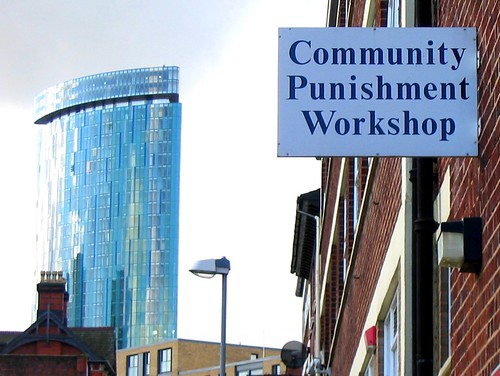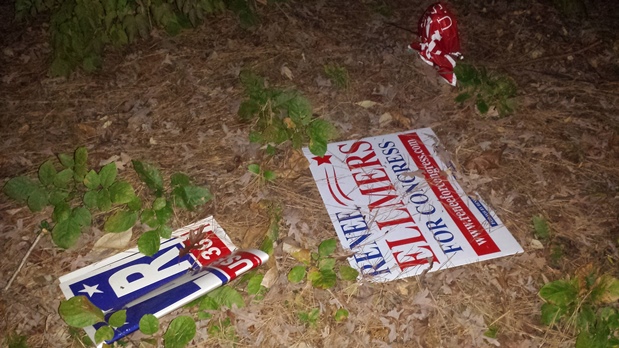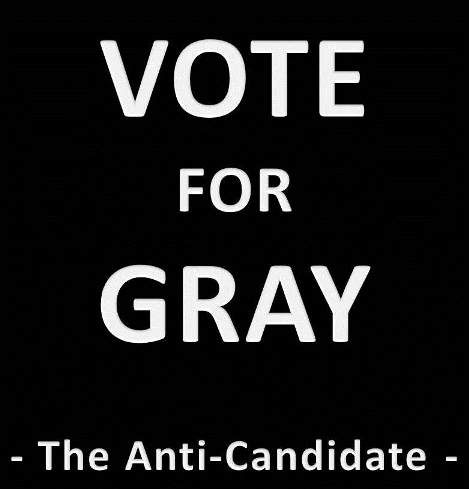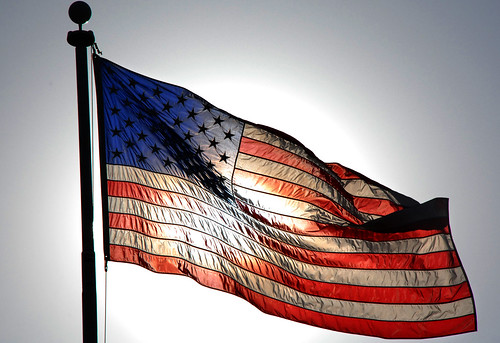Politics, where the fun never ends! Or something like that.
One of the more interesting developments of the Town Council campaign has been receiving invitations from various groups to discuss whatever issues interest them. The local real estate association, the home builders group, the Chamber of Commerce, and other groups have either asked for information or scheduled times for me to chat with them (or both). In some cases they’ve sent actual questionnaires for me to fill out and send in.
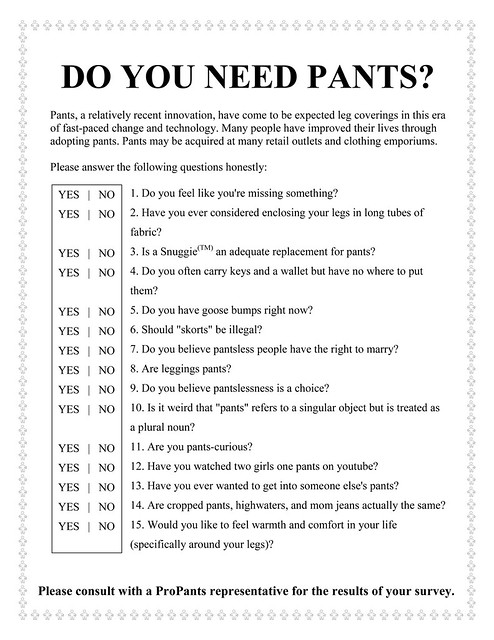
Just for fun, a survey. No, none of the groups that contacted me sent this particular survey. (Image, “Do You Need Pants? Questionnaire,” by Jason Eppink on Flickr under Creative Commons.)
It’s been interesting seeing what different groups want to know. A couple of the groups asked how much money I planned to raise for my campaign, I suppose so they can decide whether they want to contribute. I’m not sure what they’ll think when they find out I’m not raising any money — and, in general, I’m hoping to spend very little of my own. (Not that I’m averse to other people spending their own money on me, or even giving me money of their own free will. But that has nothing to do with my campaign.)
Some of the surveys have been easier to complete than others. The ones that just asked my opinion of different issues have been fine — I don’t have any problem telling people what I think! One group sent me the questions they plan to ask when we sit down together, which was a little different and actually pretty nice of them. And a couple of the groups asked very similar questions, which was convenient because I could pretty much cut-and-paste the answers.
One group was particularly straightforward, and actually asked if I would support this policy or that if I were elected. I’m afraid I’m destined to disappoint them: Sorry, but I don’t plan to make any promises to you or anyone else.
I’ll study any issues that come up, and listen to all sides, but I’m not going to commit to anything beforehand. If I don’t make a promise, I can’t break a promise. That’s part of what I mean by “politics as UNusual.”
So that’s the latest as of right now. And along the lines of the “candidate survey” kind of thing: If you’re local and want to chat about some issue that’s important to you, get in touch and we’ll see what we can do.
And if you’re of a mind to support a candidate whose approach is unconventional and who doesn’t take himself too seriously, feel free to share this blog post on social media or send the link to any friends who live in the Research Triangle of North Carolina. Let folks know that the Gray Man is a candidate for the Cary Town Council, District D, and if they want more info they can check out the election page on my website or sign up for my newsletter (using the form in the right sidebar).
On we go!
___
Spending Disclosure: As of this date, my campaign has spent a total of $10. Yes, really: ten dollars. (Okay, it’s really $12 including parking fees, but it’s a pain to get receipts for parking so the official tally is $10.)
This blog post was “paid” for, at the cost of $0 and whatever time it took Gray to write and upload it, by The Gray Man: Service, Leadership, Creativity.






